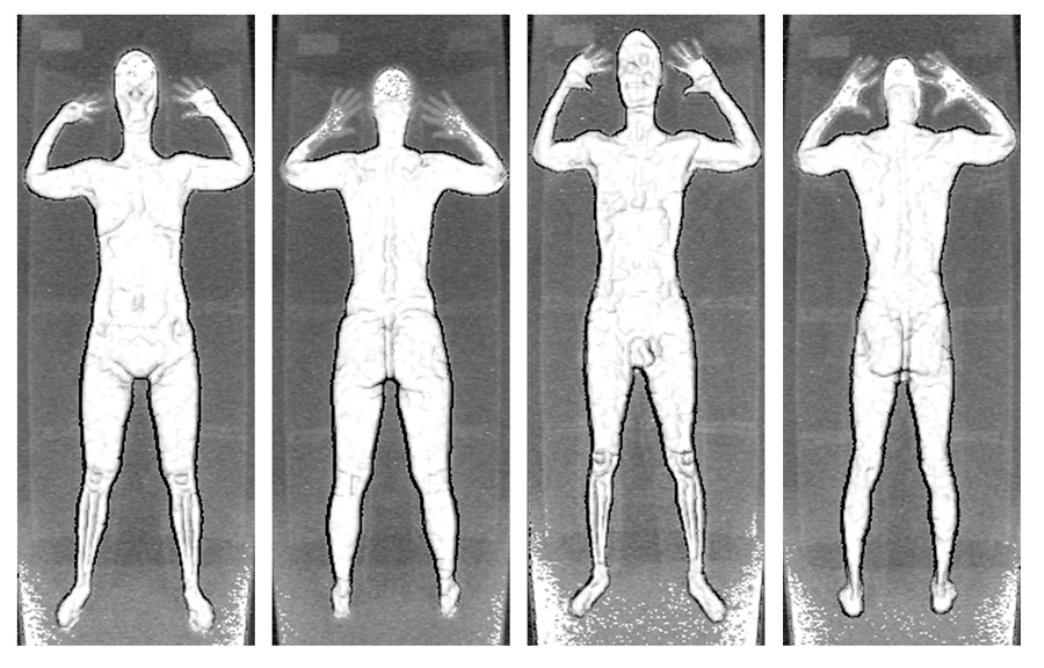Does nudity “interfere” with the TSA’s groping?
As the TSA’s “screening” has become increasing invasive — searches, x-ray and microwave “whole body imaging”, genital groping, etc. — more and more people have suggested that, since we are required to submit to a virtual strip-search and/or groping of our genitals in order to obtain TSA permission to travel, we might as well show up at the TSA checkpoint already naked.
But what happens if a would-be traveler takes off their clothes at the checkpoint, so the TSA staff can see a little more clearly whether they are carrying any weapons or explosives?
Later this month John Brennan goes on trial before a county judge in Portland, Oregon, charged with violating Portland City Code 14A.40.030 (“indecent exposure”) for doing just that. Mr. Brennan has also been threatened by the TSA with the possibility of an administrative fine of up to $10,000 for violating Federal regulations (49 CFR §1540.109) by “interfering” with TSA screeners in the performance of their duties.
As we understand it from Mr. Brennan’s blog and other sources, here’s what happened:
On April 17, 2012, Mr. Brennan showed up — clothed — at Portland International Airport (PDX) for a flight to San Jose, CA. He went through a metal detector without setting off any alarms. Since he declined to “consent” to a virtual strip-search, TSA staff also gave him an “enhanced pat-down” including the usual groping through his clothes, still finding no sign of anything contraband, dangerous, or threatening. But the TSA continued to detain Mr. Brennan at the checkpoint.
The TSA didn’t give Mr. Brennan any clear explanation of why he was still being detained, or what would happen next, but it seemed like their super-duper detectors had indicated that a chemical swab of his clothing or belongings had shown some indication of possible explosives.
At this point Mr. Brennan did the only thing he could have done to provide additional evidence to the checkpoint staff that he wasn’t hiding any weapons or explosives under his clothes, and to calmly and quietly protest the TSA’s treatment of him in the manner least likely to obstruct any further, more intrusive search they might want to conduct of his person or clothing: He took off his clothes. All of them. And when the TSA still wouldn’t let him go, but instead called the local police and told him to put his clothes back on, he peacefully declined to do so. At that point, he was arrested by Port of Portland police.
Mr. Brennan was originally charged with a misdemeanor violation of state law, ORS 163.465 (“public indecency”), but that charge — which would have entitled him to a jury trial, and would have required the prosecution to prove “the intent of arousing … sexual desire” — was dropped the next day.
That leaves the Portland “indecent exposure” ordinance and the TSA’s regulations against interfering with “screeners” in the performance of their duties.
